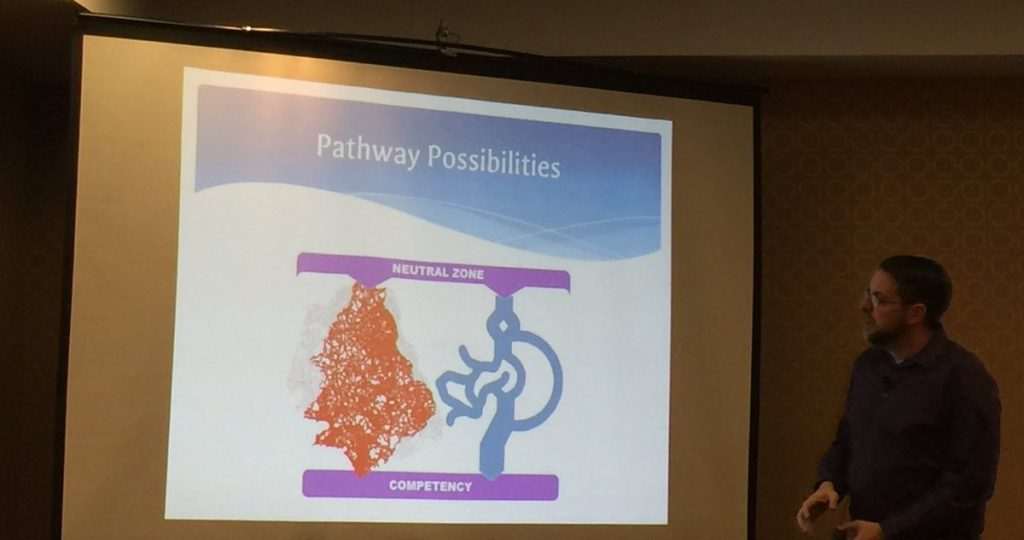 The LINK Lab had a busy spring and summer with researchers collaborating internationally on a number of studies and presenting at national and international conferences.
The LINK Lab had a busy spring and summer with researchers collaborating internationally on a number of studies and presenting at national and international conferences.
In March, Dr. Catherine Spann, James Schaeffer, and Justin T. Dellinger took part in the 7th International Learning Analytics & Knowledge Conference (LAK17) in Vancouver, British Columbia. Dr. Spann presented her paper, co-authored with James Schaeffer, titled “Expanding the scope of learning analytics data: Preliminary findings on attention and self-regulation using wearable technology.” Her research focused on the use of wearable technology to study cognitive and affective experiences of students with particular emphasis on self-regulation. Mr. Dellinger presented on the development of online master’s degrees in the field of learning analytics in the workshop titled “Building the Learning Analytics Curriculum.” More information is available via the workshop proceedings.
In April, Dr. Matt Crosslin traveled to New Orleans to present on “Designing Innovative Courses with Self-Determined / Heutagogical Learning Pathway Mapping” at the 2nd annual OLC Innovate conference. This session focused on Dr. Crosslin’s dissertation research that explores the idea of allowing learners to choose between various epistemological learning options in a course in order to self-map their own learning pathway. Additionally, in March Dr. Crosslin also presented along with Dr. Peggy Semingson and Dr. Dana Owens at the Society for Information Technology & Teacher Education’s 2017 conference in Austin, Texas. Their session, “Exploring Virtual Reality, Synchronous Learning, and Google Apps with Preservice Teachers with an Interactive Technology Workshop and Tutorial,” summarized their work, along with Dr. Brian Brown, in teaching emerging technology ideas to pre-service teachers.

Dr. Spann, Dr. George Siemens, and Henry Anderson also traveled to the University of South Australia (UniSA) to work on two research projects. Dr. Spann and Dr. Siemens are collaborating with researchers at UniSA on a study that examines undergraduate student engagement with online videos, self-reported affective judgements, physiological measures, and learning dispositions and performance. Mr. Anderson is collaborating with researchers at UniSA using Natural Language Processing and Machine Learning to assess course alignment primarily from textual descriptions of courses, programs of study, and assignment goals. Their objective is to determine to what extent developed courses 1) ask students to engage in appropriately complex ideas and 2) place level- and domain-appropriate expectations on students. The initial results have been promising and additional work will continue by applying it to new data, such as student-produced work, to assess the efficacy of a course or program in promoting student development.


Leave a Reply